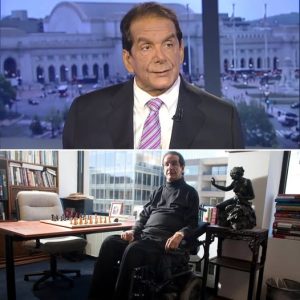“They Called for Help. No One Came.”
The Unthinkable Tragedy Behind One Missed 999 Call
On a quiet Friday evening in February, Alphonsine Djiako Leuga did what any mother would do in a moment of crisis—she picked up the phone and dialed 999. Weak, breathless, and barely mobile from her battle with sickle-cell anemia, she gave her name and address clearly. Her 18-year-old daughter, Loraine Choulla, who had Down syndrome and multiple learning disabilities, sat nearby—frightened, confused, and utterly dependent on the only person who had ever cared for her.
But something went wrong. The emergency call was logged into the system as “abandoned.” The address was recorded. No one followed up. No ambulance was sent. The case was closed—by a computer.
What followed was a tragedy almost too painful to comprehend.
For over three months, no one checked on them. Their modest home in Nottingham remained untouched, windows ajar in the growing spring heat. Inside, Alphonsine lay lifeless in her wheelchair at a kitchen table still set for two. And in the living room, Loraine’s small, frail body was found curled on the floor.
Medical investigators believe Alphonsine died days after that unanswered call, likely from pneumonia that overwhelmed her weakened immune system. Loraine, left alone without her caregiver, tried to survive. She lived for another 26 days—eating what little she could find, unable to understand why her mother wouldn’t wake up, and watching her phone’s battery die without ever knowing how to charge it.
By the time police entered the home on May 21—alerted by a concerned neighbor who noticed something was wrong—it was too late. Two lives had quietly vanished behind a locked door, and no one had noticed.
The inquest revealed gut-wrenching failures.
Detective Inspector Jack Cook called it a “catastrophic breakdown” in the emergency response system. “They asked for help. The information was clear. But the system failed them,” he said.
Susan Jevons, a representative from East Midlands Ambulance Service, admitted the truth in court: “There was a missed opportunity we cannot undo. An ambulance should have been dispatched immediately.”
And perhaps most devastating of all: Alphonsine had just been discharged from the hospital days earlier—released after a blood transfusion with no follow-up plan for Loraine’s care, despite her total dependence. Legal advocates now argue that the hospital failed to consider the risks. She was deemed “fit” to go home. But no one stopped to ask what “home” really looked like.
Since the discovery, their story has rippled through the community and beyond.
A candlelight vigil held near their bungalow in June drew mourners who stood in silence, honoring the lives lost and demanding change. Neighbors have launched fundraising efforts for families caring for vulnerable adults. Disability advocates are calling for new laws requiring emergency services to follow up on any call from a person with a known medical or cognitive disability—no matter how it’s logged.
The coroner’s office is preparing formal recommendations, and local authorities have promised a full review of emergency call protocols. But for those who knew Alphonsine and Loraine—even just in passing—the question remains: How could this have happened in modern Britain?
This is more than a bureaucratic mistake. It is a haunting reminder of what happens when systems forget the most vulnerable. When a cry for help becomes a line of code—and nothing more.
Because Alphonsine did everything right. She asked for help.
Loraine trusted someone would come.
And for 110 days, their home sat in silence—until the world finally listened.





